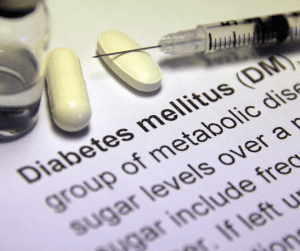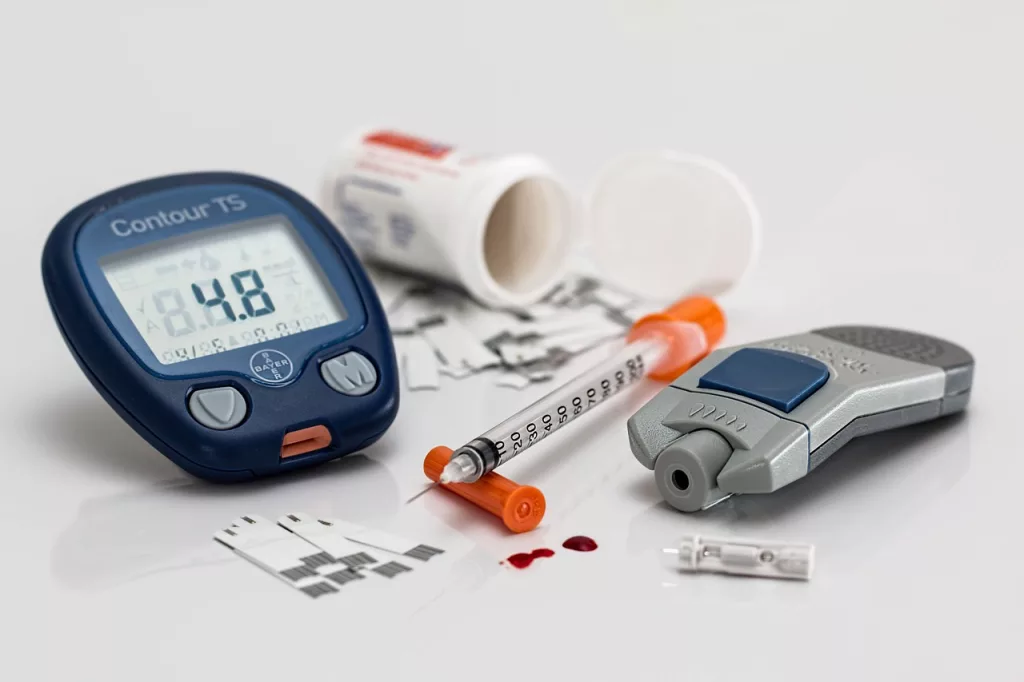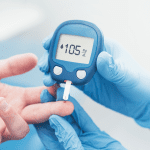Do you not realize that the levels of sugar in your blood are dangerously high? If it sounds like you, then you should read this article to learn the 7 warning symptoms of high blood sugar.

Hyperglycemia, also known as high blood sugar, is a condition that develops when there is an abnormally high level of sugar in the blood. This occurs either because of an insufficient amount of insulin (the hormone that regulates glucose into the blood) or because of improper insulin utilization.
It typically only affects people who are very sick, for instance those who have recently recovered from a stroke, heart attack, or severe infection, but it can sometimes affect people who do not have diabetes.
Hyperglycemia needs to be treated immediately. Without treatment, hyperglycemia can lead to a diabetic coma and other life-threatening complications. Long-term hyperglycemia can cause vision loss, kidney failure, nerve damage, and heart problems, even if it isn’t very severe.
Here are 7 warning signs that your blood sugar level is too high.
1. Having to urinate more frequently and feeling thirstier all the time
Normal urination frequency ranges from four to seven times per day, but those with hyperglycemia may have to go more frequently. When glucose levels rise in the blood, the kidneys work harder to flush it out, resulting in polyuria (excessive urination).
When the kidneys are unable to regulate blood sugar and bring it back to a normal level, the excess sugar is excreted in the form of urine.
2. being overly exhausted and weak
Uncontrolled blood sugar can cause feelings of extreme tiredness and fatigue. When our bodies are unable to process insulin effectively or when we do not have adequate amounts of insulin, the sugar that we eat stays in our blood rather than entering our cells to be used as a source of energy.
3. Experiencing blurry vision.
Perhaps you’ve noticed that your eyesight isn’t quite what it once was, or that things appear hazy. When blood sugar levels are consistently high, fluid leaks into the eyes, causing the lenses to become enlarged and blurry. This alters the lens’s shape and renders it ineffective at focusing, leading to blurred vision.
4. Unexpected weight loss
Even if you don’t change your eating habits, you might still see a weight loss. In the absence of sufficient dietary intake, the body will resort to breaking down stored protein and fat for energy. When your body begins to break down muscle and fat for energy, you will experience weight loss that is both unintentional and unhealthy.
Muscle weakness and increased vulnerability to falls are additional symptoms that may accompany the loss of appetite and subsequent weight loss.
5. Wounds and cuts that take a long time to heal

Long-term high blood sugar can disrupt blood flow and cause nerve damage, making it difficult for the body to heal wounds, especially in the lower legs and feet.
When blood sugar levels are not under control, it takes longer for cuts, scrapes, bruises, and other wounds to heal. Infections, even in minor wounds, can spread and become so severe that they necessitate a foot amputation.
6. Genital and skin infections
These complications can affect both men and women who have diabetes. Glucose is a vital nutrient for yeast, so an abundance of it aids growth; if your blood sugar is elevated, more of this sugar will be excreted in your urine.
Candida albicans, a type of yeast (a fungus), is frequently to blame. Having a high blood glucose level increases your risk of yeast infections, despite the fact that these infections are common even in people who do not have diabetes.
7, Nausea and vomiting
Ketones are produced when fat is used as a source of energy. The accumulation of these in the blood can lead to diabetic ketoacidosis, a potentially fatal condition (DKA).
Diabetic ketoacidosis (DKA) occurs when the liver is unable to use the sugar in the blood for energy without insulin, and instead begins breaking down body fat into a type of fuel called ketones, at such a high rate that the ketones become toxic and make the blood acidic.
Over the course of several days or weeks, hyperglycemia manifests itself through a variety of symptoms. The longer symptoms persist, the greater the risk of serious complications from high blood sugar. However, long-term sufferers of type 2 diabetes may experience no symptoms at all, even if their blood sugar levels are dangerously high.
Symptoms that only occur rarely and are easily treated or resolve on their own are usually not cause for concern. However, hyperglycemia can be harmful if blood sugar levels spike and remain elevated for an extended period of time.
Patients with diabetes often experience a gradual onset of hyperglycemia symptoms over the course of several days or weeks. It’s possible that high blood sugar levels won’t cause any noticeable symptoms until they’ve reached dangerous heights.
Consult a medical professional if you regularly experience any of these 7 signs your blood sugar is high.
An occasional brief spike in blood sugar is usually not a sign of danger. On the other hand, if high blood sugar persists or rises to dangerous heights, it can lead to a host of health complications. Eating healthy, being active, not smoking, limiting alcohol
consumption, and engaging in stress-relieving activities are all simple ways to lower your risk of developing severe or prolonged hyperglycemia. Keep in mind to monitor the level of sugar in your blood on a regular basis.
Get in touch with your doctor if you notice any of the symptoms of hyperglycemia but are not diabetic. You can cooperate with your doctor to regulate your hyperglycemia.
Disclaimer: This is for informational purposes only.
Did you find this helpful? Let us know in the comments.
Source: Everyday Health
You can also visit our Facebook and YouTube pages to know more about plants and their health benefits.
You might also like:
- The 8 Health Benefits Of Custard Apple That Might Surprise You
- 9 Surprising Health Benefits Of Coconuts You Must Know
- 6 Excellent Herbs That Will Remove Mucus From The Lungs
- Prevent Cancer With These 5 Remarkable Medicinal Plant
- 12 Incredible Medicinal Uses Of Country Borage And How To Use It Effectively!








